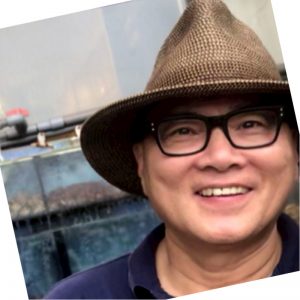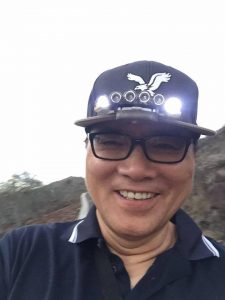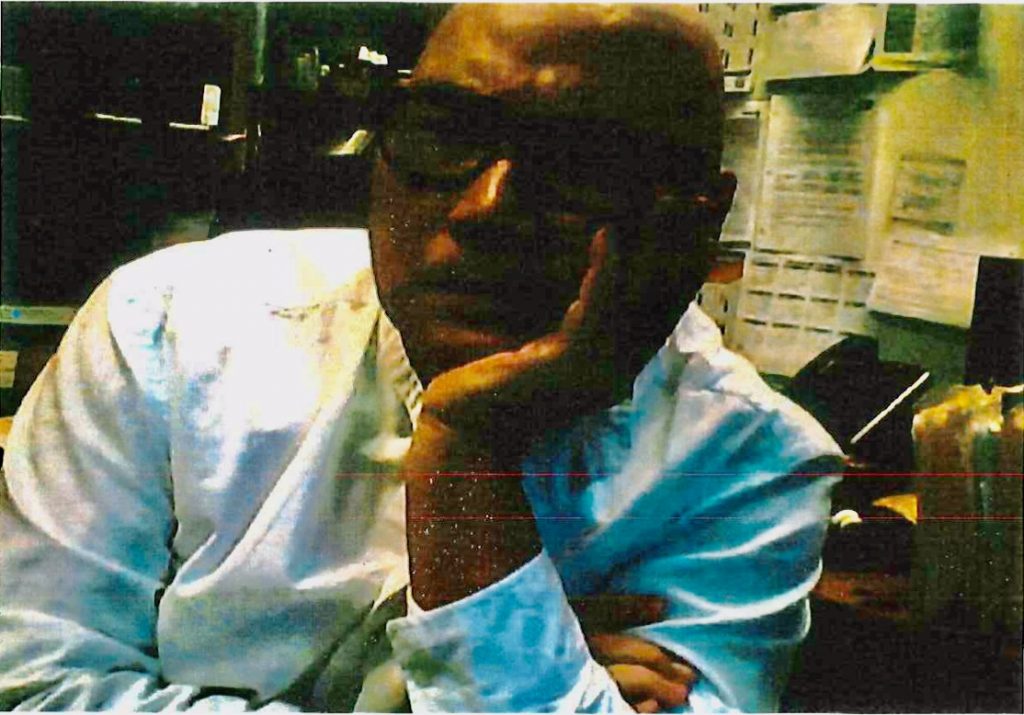On Thursday, 13 August 2020, FBI Special Agent Chris Jensen filed under seal a criminal complaint against Alexander Yuk Ching Ma of Honolulu, Hawaii, charging him with “Conspiracy to Gather and Communicate National Defense Information of the United States to a Foreign Nation.” On Monday, 17 August 2020, the complaint was unsealed.
In an accompanying affidavit, SA Jensen adduces evidence that Ma, a 67-year-old naturalized U.S. citizen born in Hong Kong who worked for the CIA from 1982-1987, acted as a “compromised asset” of the Chinese Ministry of State Security (MSS) “at least by early 2001.”
The evidence against Ma appears to be strong, consisting in part of a video recording of meetings he and an unnamed 85-year-old relative who worked for the CIA from 1967-1983 held with “at least five (5) MSS intelligence officials in a Hong Kong hotel room” from 24-26 March 2001. The 85-year-old relative “suffers from an advanced and debilitating cognitive disease,” and the FBI has therefore not sought his arrest.
SA Jensen’s affidavit states at paras. 22-26:
22. Following the March 2001 Hong Kong meetings, MA continued to remain in contact with MSS officials and to work on their behalf. The investigation has revealed that as a mechanism to once again give himself access to U.S. government information, MA applied for employment with the FBI. On December 26, 2002, MA applied for the position of “Special Agent.” On or about December 30, 2002, after being advised by the FBI that he did not meet the age requirements for the FBI Special Agent position, MA submitted an online job application to the FBI for a “contract linguist/monitor/tester” position.
23. On or about April 14, 2003, MA submitted a written application for a contract linguist position, in Chinese languages, at the FBI Honolulu Field Office, in Honolulu, Hawaii. On or about April 21, 2003, MA used a prepaid calling card to call his MSS handlers to notify them of the status of his efforts to gain FBI employment.
24. On or about May 20, 2004, MA was notified that his background investigation for the contract linguist position was complete and that an employment contract would be ready for review in several weeks. MA agreed to continue the hiring process.
25. On or about August 10, 2004, one day before reporting to work with the FBI, MA telephoned a suspected accomplice and stated that he would be working for “the other side.”
26. On or about August 11, 2004, MA reported to work with the FBI….
Left unsaid in the affidavit is that as a condition of FBI employment, Ma necessarily sat for and passed a pre-employment polygraph “test.” The counterintelligence portion of the polygraph procedure used by the FBI includes relevant questions such as “Have you been involved in espionage or terrorism against the US?” and “Have you had any unauthorized foreign contacts?”
If, as seems likely, the criminal allegations are true, then Ma beat the polygraph to penetrate the FBI.
It is to be noted that around the time Ma applied for employment with the FBI, the Bureau had a roughly 50% polygraph failure rate for special agent applicants, with many honest persons being wrongly branded as liars and barred for life from FBI employment.
SA Jensen’s affidavit goes on to chronicle instances of Ma’s alleged espionage against the FBI up to 30 November 2010. It is possible that Ma faced a second, periodic polygraph screening “test” some time during his FBI employment.
It is not surprising that Ma could have fooled the polygraph. As documented in Chapter 4 of AntiPolygraph.org’s free book, The Lie Behind the Lie Detector (which Ma might have easily found online in 2003), polygraphy is vulnerable to simple, effective countermeasures that polygraph operators cannot detect.
Ma would not be alone in having beaten the FBI’s pre-employment polygraph “test.” On 26 April 2004, Marine Corps veteran Leandro Aragoncillo, acting for current and former officials in the Philippines, beat an FBI pre-employment polygraph “test” to gain employment as an FBI analyst.
Other spies known to have passed the polygraph include Nazi spy Ignatz Theodor Griebl (in the FBI’s first use of the polygraph in a counterintelligence investigation), Czech spies Karel Frantisek Koecher and Jiri Pasovsky, Chinese spy Larry Wu-tai Chin, Russian spy Aldrich Hazen Ames, and Cuban spies Ana Belen Montes and Nicolás Sirgado.
In 2002, some two years before Ma and Aragoncillo beat the polygraph, the National Academy of Sciences advised that “[polygraph testing’s] accuracy in distinguishing actual or potential security violators from innocent test takers is insufficient to justify reliance on its use in employee security screening in federal agencies.”
Sadly, in the aftermath of 9/11, federal agencies ignored this advice. How many more catastrophic failures like the Ma case will it take before the U.S. government terminates its misplaced reliance on the pseudoscience of polygraphy?
UPDATE: A plea agreement signed on 24 May 2024 indicates that the premise of this article is wrong, and that Ma did not beat the polygraph to penetrate the FBI. Rather, the FBI was already aware of Ma’s espionage activity and hired him “for the purpose of monitoring and investigating [his] activities and contacts with [People’s Republic of China intelligence officers].” See, “Confessed Spy Alexander Yuk Ching Ma Evidently Did Not Beat the Polygraph.”



The polygraph is a fraud. Does not work, never has. The most famous CIA spies have all passed multiples times the polygraph crap test. It is unable to detect a lie, not even a single one.
It’s 100 % make believe. The examinator will look at graphs that tell nothing and say “mmm… strange. you’re hiding something” just to push the person being interviewed to reveal something, anything.
The exam is bullshit. Relying on it is why the FBI and CIA keep getting fucked in the ass. Spies of the world laugh at your stupidity.
Exactly!
The only purpose of the polygraph is to intimidate applicants into “admissions” that they were deceptive on their application forms.
China has lost its face and their spies are laughable, their training methods are weak and their spies are catched like flies all around the world.
China is just a weak country and no competitor to US.
I have seen Chinese spy training with my own eyes, I was an independent contractor in Hong-Kong, they are 50 years behind civilized countries methodologies, technology and overall level of sophistication.
PS. Funny fact:
They are still using Windows XP in their datacenters 😀
The US military runs on Windows XP.
Was it so hard to understand that Chinese national can be a Chinese spy? WTF is going on in America, it’s so obvious
Alexander Ma is a U.S. national.
Very sad…..turn him over to Donald Trump..for the “death sentence”….
Death penalty is appropriate, although he’ll never get it.
I continue to be dumb struck that the FBI considers itself the most elite law organization on Earth, but still believes in the pseudo science of the polygraph. I consider myself a true American, so I am doing all I can to have the polygraph and its derivatives such as the CVSA and PSE removed from all branches of government. A previous poster said the Chinese are relying on Windows XP. My response is – XP was, and is a fine operating system from the 2000’s. The polygraph is a failed pseudo-technology from the 1930’s that is opening doors for countless bad actors to hurt American interests.
Well another elitist racket, the CIA, continues to rely wholeheartedly on the polygraph as an anti-personnel measure, despite the fact that it has proven to be slightly less than infallible!
[…] polygraph (and who indeed must have beaten the polygraph if the charges against him are true) is Alexander Yuk Ching Ma, whose trial is presently scheduled to begin in June […]
[…] 18 August 2020, AntiPolygraph.org reported that Alexander Yuk Ching Ma, a former CIA officer and FBI contract linguist charged with espionage, […]
China born, naturalized US citizens simply cannot be trusted 100% to work in CIA FBI capacities
Most U.S. citizens convicted of espionage against the United States are native born. So a better argument than that you propose here is that no one can be trusted 100%.
Antipolygraph.org, you sound like an advocate for the CCP.
We advocate for evidence-based security practices.